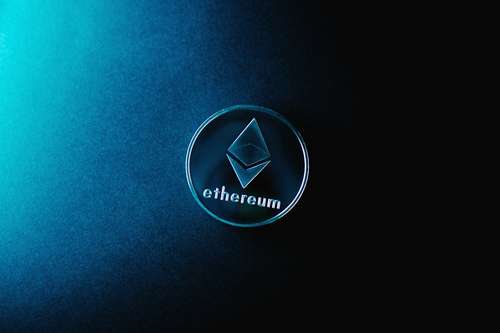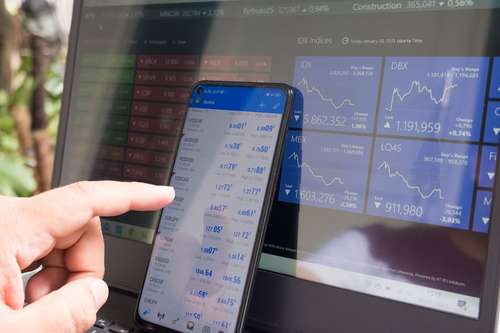
As one of the most scalable blockchains in the crypto industry, Solana developers claim that the blockchain can process 100,000 TPS (transactions per second). They even extended the claim further, saying that the blockchain only begins to struggle when it is meant to process 400,000 TPS. But other blockchains can serve as excellent alternatives for Solana.
Solana has been doing great for a blockchain established two years ago. It has even added many new offerings, including a recently launched multi-functional smartphone. However, most critics say Solana isn't living up to its expectations and may be replaced by other newer budding blockchains.
These Solana alternatives contain DApps or DeFi, which might not be available on Solana. Solana isn't the best blockchain; many options above them regarding functionality exist. Here you will learn some of these Solana alternatives and their essential facts.
Binance Smart Chain (BNB)
Binance Smart Chain is easily the next Solana alternative regarding overall functionality. This blockchain and, subsequently, its native cryptocurrency was created by the largest crypto exchange in the world, Binance. Binance is easily the next biggest competitor Ethereum has, and it serves as a cheap alternative due to less expensive transaction costs.
Founded in 2019, Binance Smart Chain can be deployed on different platforms, including SaaS, Android, iPad, MacOS, Windows, and other operating systems. It has many DeFi integrations, such as CLV Wallet, CDzExchange, and DefiLlama.
Cardano (ADA)
Founded in 2015, Cardano is a blockchain platform dubbed to be a platform for change-makers, innovators, and visionaries. As a proof-of-stake network, Cardano operates at a highly subsidized level, putting the security of users at the forefront of its service. The blockchain network is well-known for using the latest technologies in building DeFi applications and services.
With API access, Cardano has many integrations, such as Bitfinex, Coinbase, and even Blockspaces.
Polygon (MATIC)
Polygon is a cryptocurrency and blockchain network that seeks to revolutionize crypto use. This platform was built explicitly for Ethereum scaling and structural development. Developers of other projects use the Polygon blockchain to build scaling solutions for the Ethereum network. Apart from this, Polygon can also be used to create blockchain solutions for other networks.
Its native token is MATIC. Since it offers interoperability functions to the crypto industry, the Polygon blockchain is where preset blockchain networks can be deployed in one click.
Avalanche (AVAX)
According to the developers of Avalanche, they have grown beyond the level of "the next Solana." They claim to be the fastest blockchain in the crypto industry regarding intelligent contracts. While these claims are not explicitly verified, those who used the network before have noted its fastness. It also charges low fees whenever users are making transactions.
As a proof-of-stake, Avalanche is exceptionally eco-friendly as it helps reduce the crypto industry's carbon footprints.
VeChain (VET)
VeChain is another Solana alternative that became a public blockchain in 2017. It is an enterprise-grade L1 smart contract platform that seeks to provide several solutions for other blockchain networks. It tries to create an ecosystem where data issues can be solved by offering suitable solutions to enterprises. VeChain uses distributed governance and IpT tech to make these solutions that would benefit other enterprises.
Polkadot (DOT)
Polkadot is a blockchain network that brings an excellent concept among Solana alternatives. The Polkadot network runs using a technological concept known as parachains. In other words, the Polkadot blockchain has sub-blockchains within the network. Polkadot tries to achieve scalability by launching parallel chains called parachains.
These parachain networks work alongside the main Polkadot blockchain and serve almost the same function. They help reduce the amount of work on the main blockchain to make it faster.
Algorand (ALGO)
Algorand is a blockchain network built explicitly for financial firms in the crypto industry. It was built to allow the easy and effective use of finance in the crypto industry. It is a proof-of-stake platform but has a permissionless setting. Algorand is also known as a scaling solution and is free from any form of forking. Decentralization is their central building point, and they secure their network using the latest security technologies.
DeFi networks can build on the platform, and millions of transactions can be made daily without paying huge transaction fees.
Chainlink (LINK)
Chainlink is a blockchain solution focusing on smart contracts. The central focus of Chainlink is providing efficient, tamperproof inputs and instruments for complex smart contracts for any blockchain network. Chainlink allows users to connect high-quality and accessible data to any smart contract on other platforms.
With the complex smart contracts it handles, Chainlink is more secure than some blockchains.




